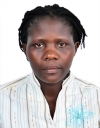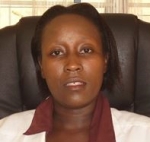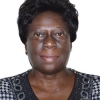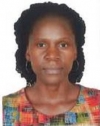Christine Nalwadda Kayemba
ID: UNCST-2020-R014220
|
EXPLORING CHILDREN’S UNDERSTANDING OF COVID-19 AND ITS PREVENTIVE STRATEGIES IN UGANDA: A CROSS SECTIONAL STUDY AMONG CHILDREN AGED 10-13 YEARS IN HOIMA DISTRICT
REFNo: HS830ES
General objective
To explore children’s understanding of COVID-19 disease and related preventive measures, in order to generate information that will guide the development of evidence-based strategies for strengthening and improving children safety and wellbeing during and after the COVID-19 crisis.
Specific objectives
1.To establish the children’s knowledge of COVID-19 transmission and its preventative measures in Hoima Municipal Council
2.To describe how the COVID-19 preventative measures are understood and practiced by children aged 10 to 13 years in Hoima Municipal Council
3.To explore the enablers for the recommended health measures for the prevention of COVID -19 among children aged 10 to 13 years in Hoima Municipal Council
4.To explore the barriers for the recommended health measures for the prevention of COVID -19 among children aged 10 to 13 years in Hoima Municipal Council
|
Uganda |
2020-11-17 |
2023-11-17 |
Medical and Health Sciences |
|
Non-degree Award |
.jpeg)
|
Doreen Nakimuli
ID: UNCST-2021-R013668
|
Formative Study to Understand Drivers and Barriers to Uptake of Permanent Methods of Family Planning Among Men and Women in Busoga Sub region
REFNo: HS862ES
The overall objective is to understand the factors that influence women, men and providers in Busoga region during the journey to access PMs to enable PSIU to design interventions.
|
Uganda |
2020-11-17 |
2023-11-17 |
Medical and Health Sciences |
|
Non-degree Award |

|
NAUME MUYANGA
ID:
|
UNDERSTANDING THE IMPACT OF GENDER BASED VIOLENCE ON HIV/AIDS PREVENTION AND TREATMENT HEALTH SEEKING BEHAVIORS AMONG TRANSWOMEN IN THE GREATER KAMPALA METROPOLITAN AREA, UGANDA.
REFNo: SS557ES
Broad objective:
To understand the impact of gender-based violence on HIV/AIDS prevention and treatment seeking behaviors among the transwomen in the greater Kampala metropolitan area, Specific objectives:
1. To document the lived gender-based violence experiences among the transwomen in the greater Kampala metropolitan area, Uganda.
2. To explore the existing gender-based violence referral pathways used by the transwomen in the greater Kampala metropolitan area, Uganda.
3. To explore the impacts of gender-based violence on HIV/AIDS prevention and treatment seeking behaviors among the transwomen in the greater Kampala metropolitan area, Uganda.
4. To identify priority issues for advocacy and programming in prevention and response to gender-based violence among the transwomen in the greater Kampala metropolitan area, Uganda.
|
Uganda |
2020-11-17 |
2023-11-17 |
Social Science and Humanities |
|
Non-degree Award |

|
Susanna (Zanna) Clay
ID:
|
The origins of empathy- Investigating empathy development in the first two years of life
REFNo: SS596ES
Empathy – the sharing and understanding others’ emotions and thoughts – is an essential part of what it means to be human. While empathy underpins our most meaningful social interactions, we lack knowledge about its developmental and evolutionary origins. Thus far, research on empathy development remains limited, something which may have led to inaccurate conclusions that infants lack the capacity for empathy before their second year.. Although the view that infants lack empathy has recently been challenged, current research remains constrained by a lack of research attention as well as suitable methodologies to study early empathy. A key goal of this project is to address these limitations by conducting the first major study of empathy development across the first 2 years of life. By combining observations with novel experimental techniques our goal is study how the cognitive and affective components of empathy emerge.
Another objective is to investigate the impact that the social and cultural environment have on infant socio-emotional development. Research indicates that caregiving and the socio-cultural environment shape infant development, however, there is little research looking into how these factors shape empathy development. In addition, most developmental research so far has been conducted on infants from Western societies, also denoted as WEIRD (Western Educated Industrialised Rich Democratic) whilst ignoring cross-cultural variability. By focusing on a subset of Western societies, current developmental research is thus not representative of global diversity; ignoring insights from cross-cultural variation may lead to inaccurate interpretations.
In order to address this and understand how the socio-cultural environment shapes empathy development, it is essential to study how empathy develops in a more diverse cross-cultural sample. Through doing so, we can also address which aspects of empathy may be learned or socially-mediated, and which might reflect human universals. The current project aims to address this by studying the development of empathy and the influence of the socio-cultural environment. The capacity for empathy has far reaching consequences for how we function as a species and interact with others. A lack of capacity to care about others (empathy) can have many negative consequences for individuals and our societies, including reduced wellbeing, quality of social relationships, crime and mental health. Given the importance of empathy for our social and societal functioning, it is essential to know where empathy comes from and how it is shaped by social and cultural experiences.
This project represents a continuation and extension of the research activities of a current and approved research project, led by Professor Katie Slocombe, running on infant development in the Masindi district of Uganda. This project was approved by UNCST and UVRI (UVRI-045/2017). Our current project uses very similar methods and is planned to be conducted with the same local research assistants and communities who have participated in this research.
|
UK |
2020-11-17 |
2023-11-17 |
Social Science and Humanities |
|
Degree Award |

|
Kenneth Katumba Rogers
ID:
|
Developing a country-specific EQ-5D-5L value set and an inequality parameter for Uganda
REFNo: SS597ES
The primary objective of this study is to develop an EQ-5D value set for Uganda,
secondary objectives are:
◠To explore the feasibility of a ‘lite’ valuation protocol in the LMIC setting
â— To elicit a health inequality aversion parameter for Uganda
|
Uganda |
2020-11-17 |
2023-11-17 |
Social Science and Humanities |
|
Non-degree Award |

|
Doreen Nakimuli
ID: UNCST-2021-R013668
|
Understanding Self Injection of DMPA-SC: Provider Research Uganda 2020
REFNo: HS938ES
The study is aimed at gaining a deep understanding of the consumer and health care provider journey is critically important to the introduction of family planning products into new districts. through answering the following questions:
1. What is the value proposition of self-inject for them?
2. What would increase their level of trust in women’s ability to successfully self-inject?
3. What would enable them to support consumers on the self-injection journey?
o What would be included in an optimal consumer initial training experience?
o What factors would support them to provide ongoing support for consumers who inject at home and experience side-effects?
o How could they better help consumers overcome barriers to access, including ensuring stock of DPMA-SC for client’s re-supply of product?
4. What factors would optimize provider training for self-injection?
o How could training be more convenient, effective, and of higher perceived value?
o What are the opportunities and barriers to using digital channels to learn and attend training on self-inject?
o What are the opportunities and barriers to using digital channels to train and support clients in using self-inject?
|
Uganda |
2020-11-17 |
2023-11-17 |
Medical and Health Sciences |
|
Non-degree Award |

|
Nathan Kenya-Mugisha
ID: UNCST-2021-R013752
|
Theoretical analysis of the pediatric discharge process in Uganda: A process evaluation
REFNo: HS929ES
The primary objective of this study is to build a theoretical model of the current pediatric discharge pathway from the time of admission until post-discharge follow-up.
|
Uganda |
2020-11-17 |
2023-11-17 |
Medical and Health Sciences |
|
Non-degree Award |

|
DAVID KATEETE PATRICK
ID: UNCST-2020-R004018
|
Co-infection of SARS-CoV-2 with M. tuberculosis & other respiratory pathogens (SARS-CoV-2-
REFNo: HS940ES
(1) Estimate the prevalence of coinfection of SARS-CoV-2 with other respiratory pathogens, (2) Investigate the impact of coinfections on molecular testing for COVID-19 infection and, (3) Apply metagenomics whole genome sequencing for unbiased detection of respiratory pathogens directly in respiratory samples
|
Uganda |
2020-11-17 |
2023-11-17 |
Medical and Health Sciences |
|
Non-degree Award |

|
Dinah Amongin
ID: UNCST-2020-R014663
|
Rapid Assessment of COVID-19 Impact on Family Planning Access and Use
REFNo: HS952ES
1. Document the proportion of Viamo 3-2-1 users who have their demand for family planning satisfied by modern methods during the pandemic and the recovery process;
2. Measure the proportion of current modern contraceptive users who have obtained their preferred contraceptive method among women who initiated or resupplied their method during the pandemic and the recovery process;
3. Describe barriers in accessing family planning services to ensure voluntary method use and choice during the pandemic and the recovery process.
|
Uganda |
2020-11-17 |
2023-11-17 |
Medical and Health Sciences |
|
Non-degree Award |

|
Patrick Kagurusi Tumusiime
ID: UNCST-2021-R012687
|
International Registry of Healthcare Workers Exposed to COVID-19 Patients (UNITY Global) at Selected Health facilities in Uganda
REFNo: HS964ES
Primary Objective
To assess the association of potential prophylactic treatments with reduced risk of COVID-19 (or SARS-CoV-2 infection) in HCWs caring for COVID-19 patients at selected health facilities in Uganda.
Secondary objectives
i) To characterize the type of potential prophylactic treatments, by dose and duration, overall, and by region and or selected health facilities (sites) in Uganda.
ii) To explore the key factors (for example, use of PPE, HCW and healthcare facility characteristics, underlying co-morbidities, household history and COVID-19 exposure) modifying the risk of COVID-19 among HCWs at selected health facilities (sites) in Uganda.
|
Uganda |
2020-11-17 |
2023-11-17 |
Medical and Health Sciences |
|
Non-degree Award |

|
Margaret Lubwama
ID: UNCST-2019-R000636
|
Antibacterial activity of Rosmarinus officinalis L. and Curcuma longa against bacteria from clinical specimens in Uganda- A therapeutic option for multidrug resistant bacteria (ARC study)
REFNo: NS141ES
Main objective
To determine the activities of Rosmarinus officinalis L. (rosemary) and Curcuma longa (turmeric) extracts against bacteria isolated from clinical specimens at the Makerere University Microbiology Clinical Laboratory (MUCML) from January 2018 to December 2019
Specific objectives
1. To develop the chemical composition of Rosmarinus officinalis L. (rosemary) and Curcuma longa (turmeric) extracts
2. To determine the Minimum Inhibitory Concentration of plant extracts from Rosmarinus officinalis L. (rosemary) and Curcuma longa (turmeric) against bacteria isolated from clinical specimens
3. To determine the synergistic effects of combination of Rosmarinus officinalis L. (rosemary) and Curcuma longa (turmeric) and antibiotics against bacteria isolated from clinical specimens in the MUCML
|
Uganda |
2020-11-17 |
2023-11-17 |
Natural Sciences |
|
Non-degree Award |

|
Wenceslaus Sseguya
ID: UNCST-2019-R000877
|
The Effect COVID-19 Pandemic on the Management and Control of Diabetes in Patients Receiving Support from a Life for a Child-Supported Diabetes Program in Kasese District, Western Uganda
REFNo: HS987ES
• To describe problems and challenges experienced by patients with insulin-requiring diabetes during the COVID-19 pandemic.
• To explore personal experiences of health workers and primary caregivers regarding diabetes management and control of patients with insulin-requiring diabetes during the COVID-19 pandemic.
• To document mechanisms used to solve problems and overcome challenges encountered by patients with insulin-requiring diabetes, caregivers and health workers during the COVID-19 pandemic.
• To describe the perceived support needs for patients with insulin-requiring diabetes during the COVID-19 pandemic period and post the COVID-19 period.
|
Uganda |
2020-11-17 |
2023-11-17 |
Medical and Health Sciences |
|
Non-degree Award |

|
Andrew Mujugira
ID: UNCST-2019-R000871
|
Interventions for Improved Post-partum ART Continuation and HIV Testing of Male Partners of Women in PMTCT B+ in Uganda
REFNo: HS991ES
Aim 1: To evaluate whether the proportion of male partners of pregnant HIV-positive women who test for HIV, is improved after distribution of a letter of invitation to a wellness visit (dual syphilis and HIV rapid test, blood pressure, visual acuity screening and COVID-19 screening) to their female partners compared to the standard of care (standard of care invitation letter from the clinic).
Aim 2: To evaluate whether POC viral load testing with same day ART adherence support improves viral suppression among pregnant and post-partum women living with HIV compared to standard of care lab-based HIV VL testing.
Aim 3: To assess the proportion of HIV-negative male partners who initiate PrEP and HIV positive men who initiate ART among male partners who test for HIV through a wellness visit or standard of care letter from the clinic.
Aim 4: To evaluate acceptability and preferences for HIV testing and other health services among pregnant women and male partners using mixed methods.
|
Uganda |
2020-11-17 |
2023-11-17 |
Medical and Health Sciences |
|
Non-degree Award |

|
Namulema Edith
ID:
|
EARLY RESUMPTION OF SEXUAL INTERCOURSE IN THE PUERPERIUM AMONG MOTHERS IN UGANDA: BURDEN AND THE EFFECT OF HEALTH EDUCATION ON PUERPERAL ABSTINENCE
REFNo: HS1050ES
1)To establish the burden and factors associated with of early resumption of sexual intercourse within the puerperium (ERSP) among new mothers in Kawempe National Referral Hospital (Kawempe NRH) and Mengo Hospital.
2)To explore the perceptions, attitudes, experiences and actions towards the ERSP among new mothers and their partners in Kawempe NRH and Mengo Hospital.
3)To explore how health care workers in Kawempe NRH and Mengo Hospital perceive the level of puerperal sexual health care services provided to couples with new babies.
4)To identify strategies that may delay the early resumption of sexual intercourse among new mothers at Kawempe NRH and Mengo Hospital and design an appropriate psycho-sexual educational intervention to reduce ERSP.
5)To evaluate the effect of psycho-sexual health educational intervention on reducing ERSP among couples with new babies at Kawempe NRH and Mengo Hospital.
|
Uganda |
2020-11-17 |
2023-11-17 |
Medical and Health Sciences |
|
Degree Award |

|
Joseph Musaazi
ID:
|
USING ROUTINELY COLLECTED SECONDARY DATA TO ESTIMATE UPTAKE AND EFFECT OF ISONIAZID PREVENTIVE THERAPY ON TUBERCULOSIS INCIDENCE AND PREGNANCY OUTCOMES AMONG PEOPLE LIVING WITH HIV RECEIVING CARE IN PUBLIC HEALTH FACILITIES IN UGANDA.
REFNo: HS729ES
1) To determine trends of IPT uptake and completion rates among PLHIV receiving HIV care at public health facilities in Uganda.
2) To determine the effect of IPT on TB incidence among PLHIV receiving care at public health facilities in Uganda.
3) To estimate the effect of IPT on pregnancy outcomes among women living with HIV (WLHIV) receiving care at public health facilities in Uganda.
|
Uganda |
2020-11-16 |
2023-11-16 |
Medical and Health Sciences |
|
Non-degree Award |

|
Jamila Nansimbe
ID:
|
UNDERSTANDING THE MEDICAL SUPPLY CHAIN BOTTLENECKS IN THE PUBLIC HEALTH SECTOR IN UGANDA (CASE OF KAMPALA CAPITAL CITY AUTHORITY HEALTH CENTERS)
REFNo: HS939ES
1. To examine the main causes of stock-outs of medicine and health supplies.
2. To examine the main causes of expiry of medicines and health supplies.
3. To recommend supply chain interventions to improve availability of medicines and health supplies.
|
Uganda |
2020-11-13 |
2023-11-13 |
Medical and Health Sciences |
|
Non-degree Award |

|
Cissy Kityo
ID: UNCST-2021-R013663
|
A5372: Drug-Drug Interactions Between Rifapentine and Dolutegravir
in HIV/LTBI Co-Infected Individuals
REFNo: HS624ES
Primary Objectives;
-To determine the dosing for DTG that, when given together with 1HP, achieves target exposures (Ctrough) of standard-dose DTG when it is given without RPT.
-To estimate the steady state plasma pharmacokinetics (PK) of DTG when DTG 50 mg is dosed twice daily (BID) with 1HP.
-If Arm 2 opens, to estimate the steady state plasma PK of DTG when DTG 50 mg is dosed once daily (QD) with 1HP.
Secondary Objectives;
-To evaluate the safety of coadministration of DTG based ART with 1HP.
-To evaluate the tolerability of coadministaration of DTG based ART with 1HP
-To estimate the proportion of participants who maintain virologic suppression when DTG based ART is coadministered with 1HP
|
Uganda |
2020-11-12 |
2023-11-12 |
Medical and Health Sciences |
|
Non-degree Award |

|
Pauline Amuge Mary
ID:
|
Community-based initiation and delivery of isoniazid preventive therapy (IPT) among household TB contacts in Uganda: A pilot project in Southwestern Uganda.
Short Title: Community-Based TB prevention (Acronym: COMBAT TB).
REFNo: HS768ES
Primary Objective:
To assess the uptake of IPT among household TB contacts <5 years of age receiving IPT in the community delivery approach.
Specific Objectives:
1. To determine IPT completion rates among household TB contacts <5years of age enrolled in community-based delivery approach compared to those in the health facility-based IPT delivery approach.
2. To identify the factors that facilitate or hinder IPT uptake in the community-based delivery for household TB contacts <5years of age.
3. To determine the feasibility of community-based IPT delivery for household TB contacts <5years of age.
4. To determine the factors that facilitate or hinder IPT completion among household TB contacts <5years of age who initiate IPT.
|
Uganda |
2020-11-12 |
2023-11-12 |
Medical and Health Sciences |
|
Non-degree Award |

|
Denis Kyabaggu Senkandwa
ID: UNCST-2023-R005881
|
INFLUENCE OF SP110 POLYMORPHISMS IN HUMAN MACROPHAGES ON PULMONARY TUBERCULOSIS DISEASE AMONG UGANDANS
REFNo: HS870ES
-To identify, using Next Generation DNA Sequencing (NGS) technology, the SP110 gene polymorphisms among adult Ugandan pulmonary tuberculosis (PTB) disease patients reporting to Mulago National Referral hospital TB clinic.
-To determine the effect of the commonest SP110 SNPs identified in Ugandans on in vitro infection kinetics of MTB as measured by confocal microscopy techniques, in human monocytic leukemia THP-1 macrophage tissue cultures.
-To determine the in vitro effect of the top 3 SP110 SNPs among Ugandans on infection kinetics of MTB lineages 2, 3, 4 and H37Rv isolates in human monocytic leukemia THP-1 macrophage tissue cultures using confocal microscopy.
-To determine the SP110 SNPs present among TB patients co-infected with HIV at Mulago National Referral Hospital TB clinic.
|
Uganda |
2020-11-12 |
2023-11-12 |
Medical and Health Sciences |
|
Degree Award |

|
Rhoda Wanyenze
ID: UNCST-2021-R013352
|
PILOT OF A NETWORK-DRIVEN, ADVOCACY INTERVENTION TO PROMOTE CERVICAL CANCER SCREENING IN UGANDA
REFNo: HS943ES
The proposed intervention development study seeks to improve cervical cancer screening in Uganda by engaging and training local public health researchers and program implementers, and empowering women living with cervical cancer risk (WLCCR), defined as women who have ever received treatment for pre-cancerous or cancerous lesions, to advocate for CC screening and early treatment among women in their social networks. Specifically, the study will aim to:
1. Assess the feasibility and acceptability of implementing a cervical cancer screening advocacy intervention with WLCCR, who will be trained to be advocates for CC screening and treatment behaviors in their social networks.
2. Assess preliminary intervention effects on the CC screening (primary outcome) and treatment behaviors of women in contact with the WLCCR advocates and diffusion of anti-stigma messages across social networks.
3. Explore characteristics of women who more effectively engage in screening advocacy (in terms of socio-demographics, network characteristics, and type of social network members receiving advocacy).
4. Increase capacity among local researchers and program implementers to conduct public health research on cervical cancer control and use social network-based intervention and measurement methods.
The intervention will be implemented in three phases, and for each phase, we will seek ethical clearance and approval prior to data collection. At the moment, we are seeking ethical clearance for the first phase where we intend to conduct focus group discussions to obtain women's perceptions and suggestions about the intervention to inform the development of the intervention.
|
Uganda |
2020-11-12 |
2023-11-12 |
Medical and Health Sciences |
|
Non-degree Award |

|
| View |
|
Sort By: |
|
|
|
| |
|